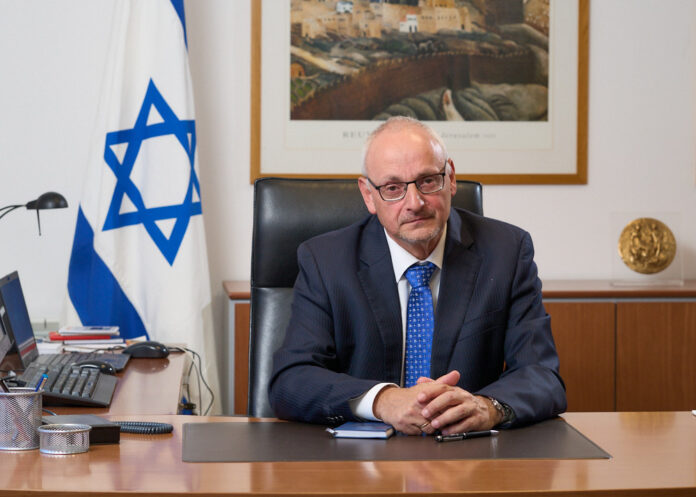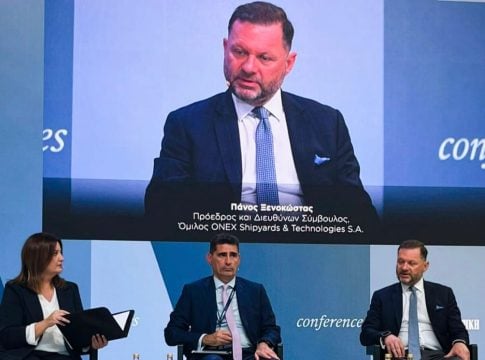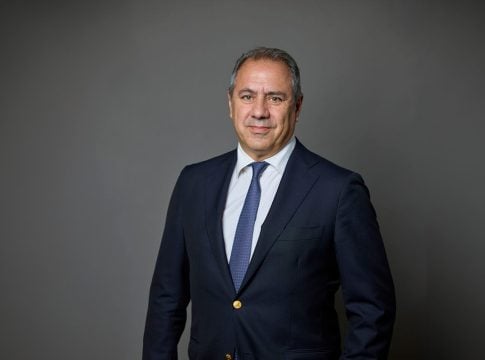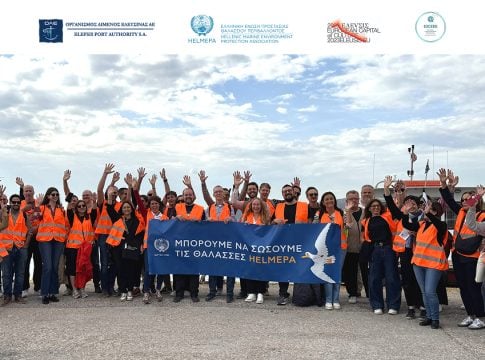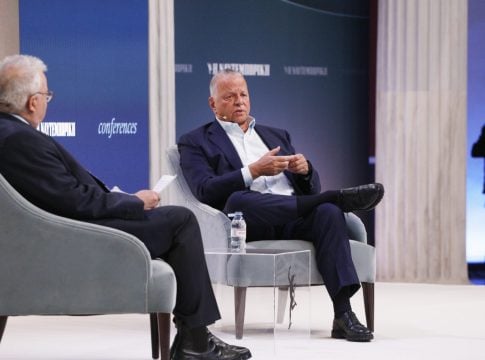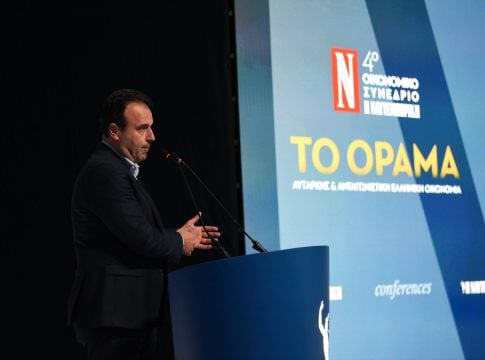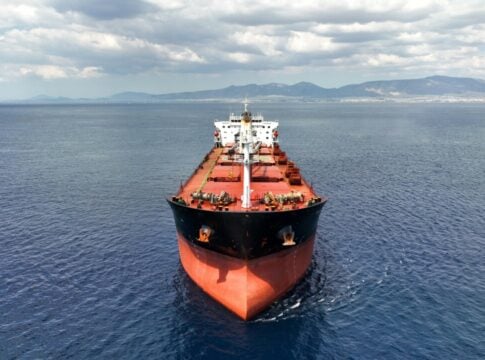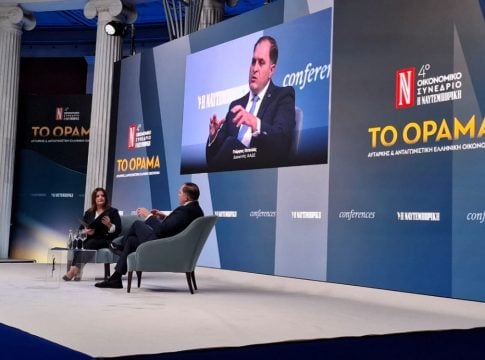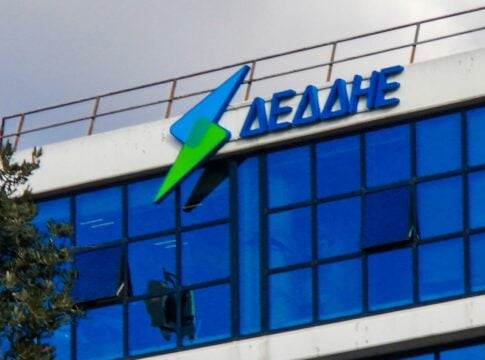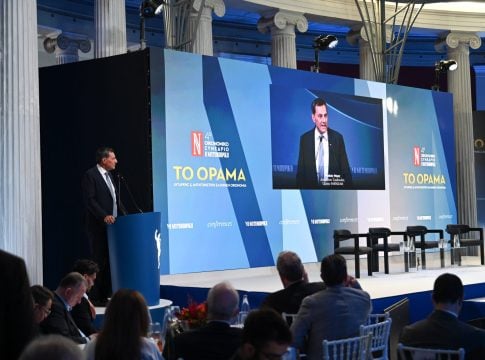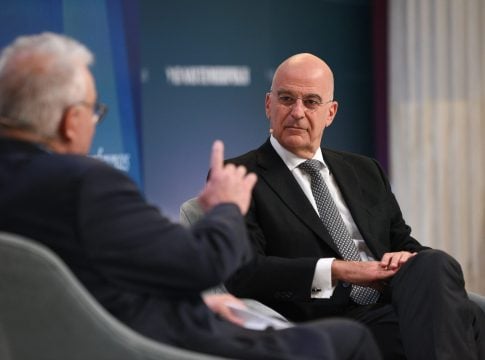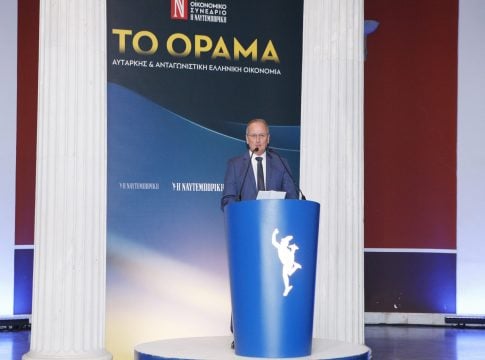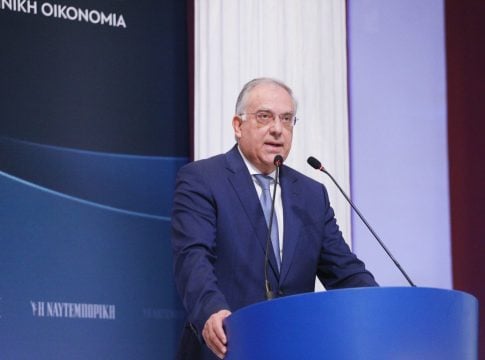By Michalis Psilos
The US President Donald Trump presented an unconventional position about Gaza which will be part of the future discussion, Israel’s Ambassador to Greece Noam Katz said in an interview with “Naftemporiki.”
“If we want to advance peace in the Middle East, if we want to create a better life for Palestinians and Israelis and for the people and nations of the entire region, we have to get rid of the extremist radical parts that are ruling Gaza,” he underlined.
“I think the most important thing is that the meeting of the Prime Minister Benjamin Netanyahu with the US President Donald Trump is a reflection of the very strong relationship that exists between Israel and the United States. There is very good communication and chemistry that the two leaders have, and that was beyond content. It was seen in body language. Our relationship with the United States is the strongest that we can have.”
What do you think about Trump’s plan to turn Gaza into a “Middle Eastern Riviera”?
The president presented an unconventional position. This is stemming from understanding the reality that many around the world refuse to understand that if we repeat the same mistake, we get the same results. We all understand that Hamas cannot stay in Gaza, rule Gaza, have an army in Gaza and pose a threat to the state of Israel. It was a mistake to allow a very radical, extremist, genocidal organization to rule Gaza. An organization that even now reiterates its desire and will to annihilate the state of Israel.
So if we really want a better future for Israelis and a better security for Israelis, if we want a better future for Palestinians, we have to release them from the grip of that genocidal organization. We have to remember October 7 every day of our life. We need to know.
Hamas has not been defeated, however. It is still there, in Gaza.
If we want a stable solution, we have to get rid of Hamas governmental and military capabilities in Gaza. Nobody will invest money, effort, time, resources in rebuilding Gaza under Hamas rule and under the reality that it is forced upon our two countries. So the president brought up an idea. It will be a part of the future discussion. But I think that we have to focus on the goal. And the goal is that if we want to advance peace in the Middle East, if we want to create a better life for Palestinian Israelis and for the people and nations of the entire region, we have to get rid of the extremist radical parts that are ruling Gaza. And by the way, it’s the same for other places. We believe in the vision of peace.
We are speaking about a reality in the region where radicals will be pushed out. They will be pushed out, sometimes by force, then by the power of education and creating new realities. We need to have new ideas. We have to think out of the box, because what we were doing so far didn’t yield. We believe that it is possible. The Iranians are weaker. Hamas has been degraded. Hezbollah has been decimated. Assad’s rule is no longer there. Iran is weaker than it was before.
Mr. Ambassador, how do you plan to deal with Iran and its efforts to acquire nuclear weapons?
We are worried and we are ready to take action to verify that Iran will not have a military nuclear capability. I think that the president said it very clearly, and we support it, that if it can be achieved through diplomacy, it’s better. But we cannot tolerate, we cannot and we cannot turn a blind eye to any attempt of Iran to achieve such military capabilities, which will be disastrous for world peace for the region and will create a very unstable reality worldwide.
What does Netanyahu’s statement about redrawing the “Middle East map” mean?
We think about our strategic geopolitical standing in the Middle East, in many ways we are stronger than we were on October 6. It means that the main engine of instability in the Middle East, which is the radical Ayatollah regime in Tehran, was weakened. And the network of proxies that they have, they’ve been building was massively degraded. It paved the way for the changes in Syria. It paved the way to the changes in Lebanon, which we hope that the Lebanese people and the international community will use to restore the power and the control into the Lebanese state, instead of a terror army that has a political grip and military grip on the life of Lebanese people in Gaza. As we said, the military machine of Hamas was broken. We need to complete it by removing the governmental capabilities in Gaza. And I would add, we are speaking about all these, but we have a prime objective to release all our hostages to bring them back.
Aren’t you afraid of the role of the jihadists who have seized power in Syria?
We have to be very cautious and on alert when we deal with Syria. There is the fact of a new government in Syria. Its origins are in the jihadist movement. They come now because they have to consolidate their control in Syria. They come out with all sorts of promises to satisfy and calm down the international community. And we need to understand that words are not enough and things should be tested by action. I don’t think that there is anybody in the international community that is challenging the integrity of Syria as one state, but in Syria we have minorities that have to be protected and respected.
People speaking about the Kurdish people. I’m speaking about Druze people. I’m speaking about Christian minorities in Syria. You have a lot of communities that suffered from the Assad regime, suffered from a situation of war, suffered from the jihadist, a movement that exists on the ground in various parts of Syria, including ISIS forces that are still there. And therefore, if we seek stability, we have to see that minorities will be protected. We have to see also that we assist this government, and we are giving it some kind of a chance to stabilize and to prove that it is capable of sticking to all the promises that they say. But we have to maintain the tool and the leverages in order to see that we will be able to use them in case of need. Syria. Syria, the northern part of Syria, is controlled and basically is under a strong influence of Turkey. Those elements of the rebels that took control of Syria, some of them have hostilities going on with the Kurdish autonomy. We have to see that that will be stopped, that the Kurdish will be protected. They declared themselves that they would like to be integrated into the Syrian system, and we have to do it in a way that will secure their future, not forgetting the important role that they played in defending the free world. I would say battling ISIS.
And we come to the role of Turkey. Mr. Ambassador, many are talking about a shadow war between Turkey and Israel…
You know, Turkey is a strong country, a regional power in our region. And we all have to aspire to build better relations and to minimize friction. Up to now, Turkey, at least from an Israeli perspective, is playing a very negative role, not a constructive role. They support Hamas. They support the radical element within the Sunni Muslim world, including some parts that took control in Syria. Now, having said that, we would like to minimize the friction. We think that the world can develop conversation with Turkey and see that the equilibrium in our region will be going in a better direction than it was going up to now.
But Erdogan is promoting a neo Ottoman foreign policy…
This is not a secret. Statements regarding Israel are not promising. As I said, they are not constructive. They are exactly the opposite of being constructive. Turkey is playing a role that is problematic. And we have to maintain our cautiousness when it comes to the region and to the development in Syria. I think that unlike countries like Iran, you have a set of other tools, world tools, from the interaction that Turkey has with the United States to its will to maintain relations with Europe, economic partnership, a membership in NATO that can give a better chance to balancing those things that are not going according to our own perspective in the right direction.
How are Israel’s relations with Saudi Arabia developing? Will the so-called “Abraham Accords” be revived?
First, I must say, and I’m going here to compliment President Trump in his first tenure. He was the driving force behind the major achievement of our region is the Abraham Accord that led to a peace agreement between Israel and Arab countries in the Middle East region. I think that these peace agreements stand the test of war in the region. We do not necessarily see eye to eye on all issues, but we maintain relations and an open dialogue and also all sorts of other relations that continue through the period of war. I would say that Arab companies flew to Israel during the war more than European companies or companies. That’s the reality. So these are strong, strong relations. It’s beneficial, so it works. It serves the interest. I believe that that will be expanded. President Trump expressed it very loud and clear and strong. We expressed it. I think that the Saudis are expressing it at the beginning of conversation. And I’m very optimistic that relations with Arab countries will expand and grow.
You have been in Athens for two years. How do you see Greece-Israel relations now?
Our relations began to develop in 2010. We are talking about a strategic partnership, because we have common values and interests. We are neighboring countries and because we have very strong interests and common vision of how the Eastern Mediterranean and the Middle East should be in order to stabilize and to increase prosperity. So we see along the period relations in almost all aspects, whether it’s commercial, whether it’s people to people, whether it’s defense, energy.
The Minister of Foreign Affairs of Greece George Gerapetritis recently visited Israel. He visited other countries in the region, which is also an example of how diplomacy and the closeness between our countries are serving the same vision that we have. We had a very strong business delegation from Israel that came here despite the war. The Israeli economy proved to be resilient. In fact, the parameters are positive parameters of growth. You don’t expect a country that is going through a very long period of a very difficult war to show performances like this. And we have a lot of room to collaborate. There will be a lot of needs in our region. Our region is going to serve in the future as a major corridor between the Indo Pacific and Europe. We have a lot of common things that we can do together. There is a will. There is a will not only by the government but by all other stakeholders and therefore it’s going to grow.


